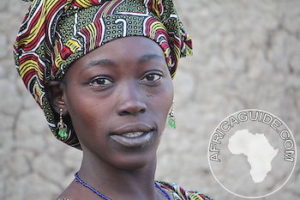
*The Bambara community celebrated this date in 1200. They are a Mandé ethnic group native to much of West Africa.
The Bamana originated as a royal section of the Mandinka people. They are the founders of the Mali Empire in the 13th Century. Both Manding and Bambara are part of the Mandé ethnolinguistic group, whose divergence is dated to at least about 7,000 years ago and branches of which are associated with sites near the Sahara in southern Mauritania), where urban centers began to emerge as early as 2500 BC. By 250 BC, a Mandé subgroup, the Bozo, founded the city of Djenne. Between 300 AD and 1100 AD, the Soninke Mandé dominated Western Mali, leading the Ghana Empire.
When the Mandé Songhai Empire dissolved after 1600 AD, many Mandé-speaking groups along the upper Niger River basin turned inward. The Bamana appeared again in this milieu with the rise of a Bamana Empire in the 1740s when the Mali Empire started to crumble around 1559. While there is little consensus among modern historians and ethnologists about the origins or meaning of the ethnolinguistic term, references to Bambara can be found from the early 18th century. In addition to its general use as a reference to an ethnolinguistic group, Bambara was also used to identify captive Africans who originated in the interior of Africa, perhaps from the upper Senegal-Niger region, and were transported to the Americas via ports on the Senegambian coast.
As early as 1730, at the slave-trading post of Gorée, the term Bambara referred simply to slaves who were already in the service of the local elites or French. According to the Encyclopedia of Africa, "Bambara" means "unbeliever" or "infidel"; the group acquired the name because it resisted Islam after the religion was introduced in 1854 by Tukulor conqueror El Hadj Umar Tall." Growing from farming communities in Ouassoulou, between Sikasso and Ivory Coast, Bamana-age co-fraternities (called Tons) began to develop a state structure that became the Bambara Empire and later the Mali Empire.
In contrast to their Muslim neighbors, the Bamana state practiced and formalized traditional polytheistic religion. However, Muslim communities remained locally powerful if excluded from the central state at Ségou, primarily southern Mali, Guinea, Burkina Faso, and Senegal. They have been associated with the historic Bambara Empire. Today, they make up the largest Mandé ethnic group in Mali, with 80% of the population speaking the Bambara language, regardless of ethnicity.
The Bambara language, mutually intelligible with the Manding and Dyula languages, has become the principal inter-ethnic language in Mali and one of the state's official languages alongside French.